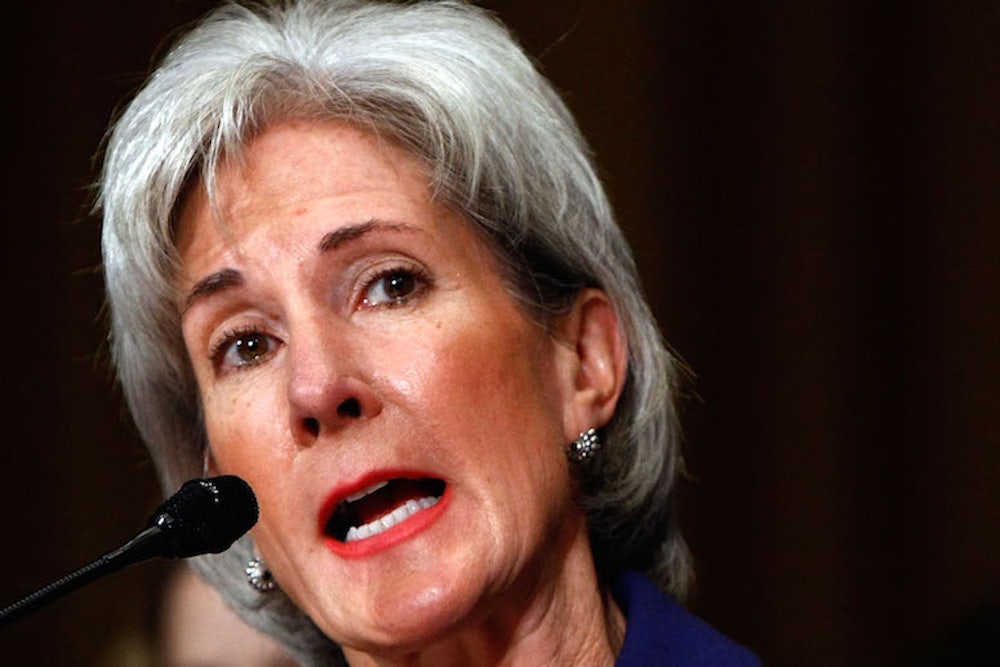My colleague Jonathan Cohn has written an excellent analysis of the circumstances surrounding Kathleen Sebelius' resignation, which will be officially announced later today.
I'd like to add a level of abstraction by explaining the timing, and the political ramifications of the decision, which are being badly spun or misinterpreted in unsurprising quarters.
For obvious reasons, Sebelius' supporters want to treat her decision to step down as a mic drop. One of her final official tasks was announcing that state exchange enrollment has topped 7.5 million signups. By contrast, Republicans want you to construe Sebelius' resignation as the Obama administration's implicit recognition that the implementation of the law is an ongoing disaster.
People don't resign if their "major accomplishment" was awesome, popular or turned out really well. #ObamaCare #Sebelius
— Brad Dayspring (@BDayspring) April 10, 2014From where I sit, there's a small kernel of truth to each assessment, but they both badly exaggerate the administration's motivations.
It's true, for instance, that Sebelius wouldn't be resigning if Obamacare were still in the midst of October or November-like chaos. The end of an ultimately successful enrollment period gives rise to a quiet moment during which a successor can transition smoothly into Sebelius' role. It reflects genuine confidence that the worst is behind them.
But it's simultaneously true that Sebelius probably wouldn't have resigned the week after open enrollment ended if implementation had been a cakewalk. It wasn't. This isn't a mic drop at all. And though that doesn't mean the administration is admitting that the law is a mess as it stands right now, it does point to a recognition that there needs to be accountability for the Healthcare.gov outage, and perhaps that in-cycle Democrats need an answer for voters who expect that kind of accountability. Someone who's been in politics as long as Sebelius understands that being a fall guy is occasionally an unfortunate part of the job. You'll notice that Democratic operatives in Washington are sending her off with fulsome praise, but nearly all of the national news stories reporting her resignation have framed it as a culpability moment.
Red State's Erick Erickson takes things wildly further and claims that it's effectively an admission against interest that Democrats expect to lose the Senate. This is a wishful, but strange, conclusion.
With respect to the argument that the administration is rolling Sebelius in reaction to bad polling, that just doesn't fit the facts.
The Democrats' Senate outlook has improved pretty dramatically in the past week, at least given the polling.
— Sean Trende (@SeanTrende) April 10, 2014If the idea is that replacing Sebelius will be easier now than in 2015 under a GOP majority, that's obviously, trivially true. Especially given that Democrats recently eliminated the filibuster for most Senate-confirmed positions. But you know what would be even easier than replacing Sebelius now? Not replacing her at all.
That she's on her way out tells us something. Just not as much as interested parties would have you believe.
